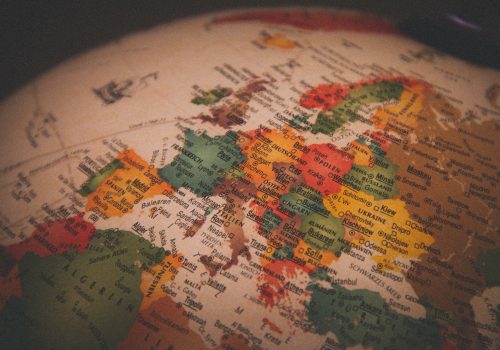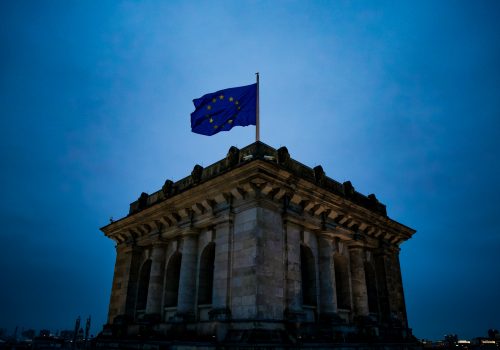Cooperation in a bipolar world
Taking into account China’s growing influence around the world, discussions often alluded to an uncomfortable truth: In order to avoid catastrophe, even rivals must cooperate, which is why participants, particularly at roundtables in Europe, were keen to identify a number of areas that could lower the tensions and help build trust among antagonistic stakeholders. By emphasizing the global nature of the challenges at hand, French leaders pointed to lessons learned from the United Nations Framework Convention on Climate Change (UNFCCC) process. Allegedly, consultations at the expert level could help establish a universally agreed baseline on the harms versus the benefits of the AI revolution. Such an acknowledged picture of the total effects from modern technologies might then inform policy makers as to the needed regulatory steps to minimize negative externalities, while maximizing potential benefits. Individual countries and multilateral organizations such as the Group of Twenty (G20), the International Monetary Fund (IMF) and the World Bank, or regional organizations like the European Union could then all start from the same set of agreed facts concerning AI and the various aspects of the emergence of modern technologies—and coordinate on needed social, economic, data, and ethical protections.
Cooperation, however, needs to begin at the domestic level by building trust and confidence first between governments, companies, and consumers on AI and related technologies. In many cases, the public trust does not exist, due to concerns over job insecurity, privacy, and the future of work. To avoid such negative public perceptions, governments and private companies should share their failures as much as their successes in employing AI. Regulatory efforts to build public trust will require experimentation, and lessons learned would certainly benefit from comparisons with attempts elsewhere. Such sharing, across multiple efforts, could then help establish international guidelines to define the rules of the game, prevent escalating conflicts, and enable reconciling social needs with uses of the new technologies.
With the enactment of binding rules for all players, collaboration could further help erase fears of falling behind in the global AI race. Such an approach was advocated particularly by European roundtable participants, while Chinese and US discussants highlighted a level playing field as more important for tempering the ongoing competition. Interestingly enough, Chinese officials that contributed to this project were open to developing regulatory frameworks, though many Western counterparts believed that they could stifle innovation and hamper economic growth.
The full text of this report is split across a collection of articles to give readers the opportunity to browse in any order. To return to the main page click here.

The GeoTech Center champions positive paths forward that societies can pursue to ensure new technologies and data empower people, prosperity, and peace.






